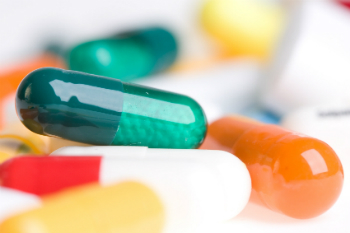
Heat and medication: Humidity and soaring temperatures can alter drug effectiveness
15 January 2013
Taking precautions to beat the heat? You may not realize that your child’s prescription medications need protecting as well. As you seek cool, shady spots while on vacation, or at home, don’t leave your medicines behind in the car, say experts at The Montreal Children’s Hospital (MCH) of the McGill University Health Centre (MUHC).
“All medications need to be stored in a controlled room temperature, between 20 to 25 degrees Celsius,” says Patricia Vandercruys, Site Coordinator of the Pharmacy Department at The Montreal Children’s Hospital. “Many prescription drugs are very sensitive to changes in temperature and humidity, and may their potency and effectiveness can be altered if they are exposed to extreme heat.”
Egg on a sidewalk analogy
Many medications break down at temperatures higher than 30 degrees Celsius. Much like what would happen to an egg when cracked on the sidewalk under extreme heat – the yolk and egg white would go from liquid to solid as it cooked – liquid medications and creams can potentially lose their potency and stability if exposed to heat wave temperatures. Capsules, powders and pills will also degrade under high heat.
“The breakdown of meds may result in potentially harmful effects,” says Ms. Vandercruys. “What’s worse, you can’t necessarily tell if the medication has been altered.”
Some meds, however, can tolerate a short amount of time in moderately high temperature, explains Ms. Vandercruys.
“If you’re going for a day trip, it’s best to take only the quantity of medication you need,” she says. “Leave medication bottles behind in a hotel room or at home. If your child is prescribed very sensitive products, such as insulin or antibiotics, specialized cool packs can be purchased at the pharmacy.”
Not sure whether your child’s medications can withstand a given temperature? It is important to read the label. If your child’s medication bottle does not have a detailed label, inquire with your pharmacist, who is most qualified to answer your questions about the safety of your child’s medication.
Never in the car trunk
Medications should never be stored in a car, especially in the trunk, as temperatures inside a closed vehicle can get extremely hot. Additionally, meds should be carried with you when travelling by air.
Medications that are discoloured, have an unusual odor, appear damaged, or creams that are separated should not be administered to your child.
Meds at risk
Any life-saving medication such as heart medications, seizure drugs, hormone therapy drugs and insulin (including glucose test strips) should not be exposed to heat, even during short excursions.
If there’s a prolonged power outage in your area, contact your pharmacist to determine whether your child’s prescription needs to be replaced.
“Exposure to heat can make these drugs less effective,” says Ms. Vandecruys. “This is definitely something you can’t afford to treat casually.”
Beware of heat-related illness, sun sensitivity
It is also important to note that some medications can increase the risk of heat related illness, especially in older adults: beta-blockers, antiparkinson agents, antidepressants and diuretics are but a few. Other medications may cause increased sensitivity to the sun, otherwise known as photosensitivity. Your pharmacist should let you know if there are extra precautions you need to take while on a certain medication, but if unsure, you should always double-check.
This page needs an update? Report it here!
